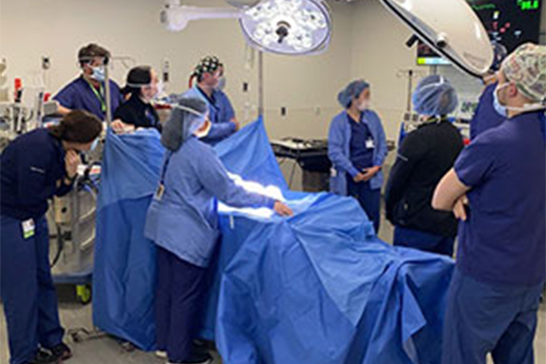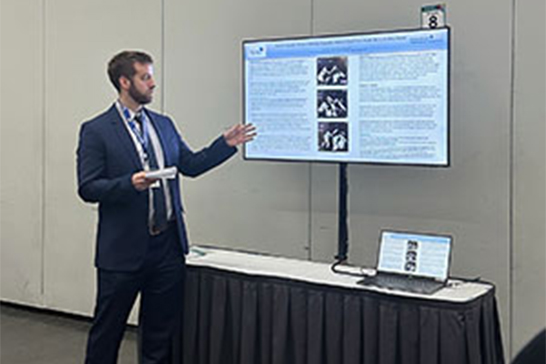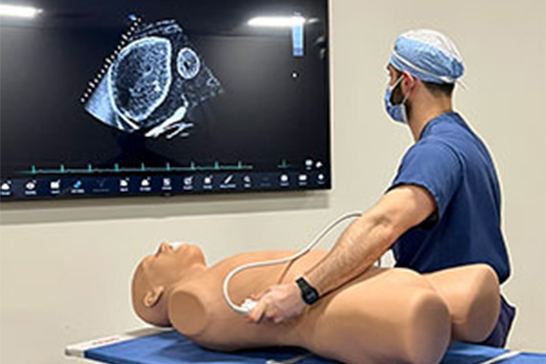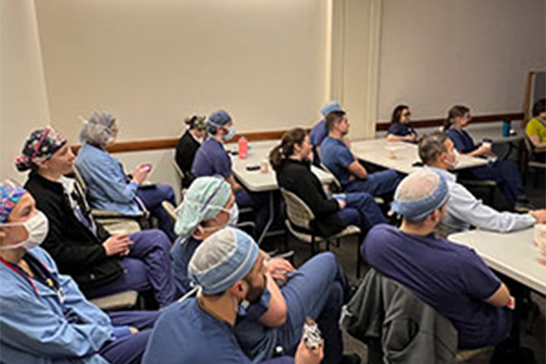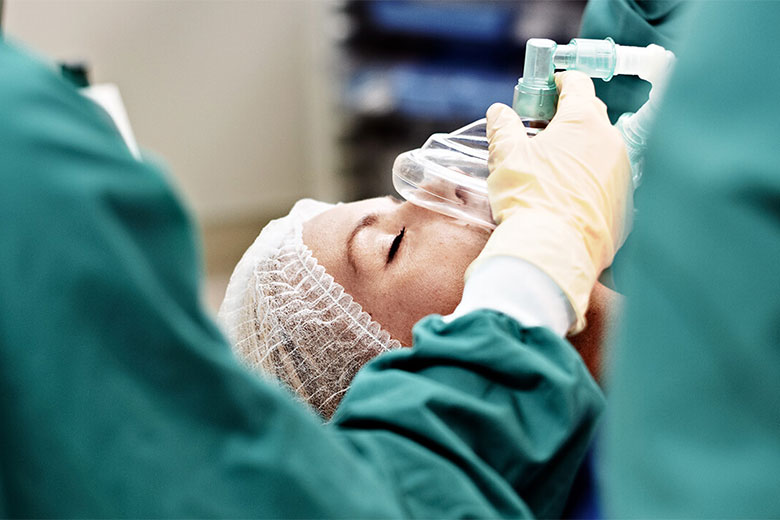Anesthesiology Residency
Get Started
Training in Anesthesiology
The renowned surgeon Dr. Frank Lahey founded an exclusive group practice in 1923 to create a comprehensive clinic “complete in every detail for the care and cure of the sick.” Dr. Lahey had a belief in the group care model and a conviction that his fledgling clinic would become a center for research and learning.
In This Section
Dr. Lincoln F. Sise, an anesthesiologist with Dr. Lahey’s original team, became a significant contributor to the emerging field of Anesthesiology. Dr. Sise was a visionary champion of anesthesia safety, regional anesthesia, perioperative medicine, and anesthesia education during the infancy of our specialty.
A strong tradition of innovation and collaboration continues today at Lahey Hospital & Medical Center (Lahey), a physician-led, tertiary care hospital.
LHMC, the flagship institution of the Lahey Health network, houses many well-known, specialized centers. The Landsman Heart and Vascular Center, the Cerebrovascular Disease Center and the Departments of Transplantation and Urology are regional, national and international leaders in their respective fields.
Throughout its growth, the Lahey multi-specialty group practice has maintained an incredible culture of collegiality and team-work.
Clinical Experience
The variety and complexity of cases at Lahey provide a rich environment for residency training. The anesthesia faculty at Lahey has been training residents rotating from Boston hospitals since 1990. With this long, proud history, LHMC is sponsoring an Accreditation Council for Graduate Medical Education (ACGME)-accredited Anesthesiology Residency Program.
The four-year residency program accepts eight residents per year. Training occurs in a collaborative environment. Operative cases range from routine ambulatory procedures to complex neurosurgical, vascular, cardiothoracic and transplant surgeries. Case assignments are individualized to each resident’s ability and level of training.
The Department of Anesthesiology administers more than 25,000 anesthetics annually between LHMC in Burlington and an ambulatory surgery center at Lahey Medical Center Peabody. Pediatrics and obstetrics rotations are completed at Boston Children’s Hospital and Brigham and Women’s Hospital.
The Chairman, Dr. Michael Kaufman, came to Lahey in 2006. Dr. Sohail Mahboobi, the residency Program Director, is a Cardiothoracic Anesthesiologist who joined the department in 2008.
Anesthesiology Residency Education & Research
Two to three weeks prior to the Basic and Advanced exams, the daily resident conferences will become targeted board review sessions to help prepare residents for the exam.
Monday, Tuesday, Thursday, from 9:45 am to 10:30 am and Friday, from 11:15 am to 12:00 pm.
There are regular departmental conferences from 7:00 am – 8:10 am on Wednesdays and include grand rounds, clinical practice reviews (CPRs), Journal Club, visiting speakers and Outcome Process and Peer Review (OPPs) conferences. Residents are expected to actively participate in all of these conferences either in person or virtually.
The curriculum of the didactic lecture series is based on the American Board of Anesthesiology (ABA) Content Outline. The sessions follow the Basic and Advanced Examination topics and are interactive. Every July these conferences focus on introductory Anesthesiology topics for the new CA 1 class.
Every Wednesday morning from 6:30 am – 7:00 am: residents make short presentations on high yield topics identified from the knowledge gap reports of various standardized Anesthesiology tests (e.g. ITE, basic and advanced exams). These sessions are supervised and moderated by a faculty member.
There is one monthly session dedicated to the practice of the OSCE exam. The ABA content outline for the OSCE exam is covered in these sessions. Every session is followed by debriefing and feedback.
There is a dedicated 2-week rotation in CA-1 for Point of Care Ultrasound (POCUS), along with a regular hands-on workshop. POCUS and echocardiography (TEE and TTE) training also includes didactic lectures for basics functioning and principles and hands on training sessions on our TEE and TTE simulator. The ultrasound training sessions cover regional, thoracic and abdominal ultrasound.
The residents cover an online quality improvement course (IHI) during PGY 1 year. In CA 1 year, under faculty supervision, residents are required to complete and present a quality improvement project. The departmental quality improvement team is a great resource for residents to identify and execute quality improvement projects.
Residents are also encouraged to complete a clinical study or research project worthy of submission to a peer-reviewed journal during residency training.
The resident can use some of their elective time to complete ongoing research projects. The residents are encouraged to present posters, case reports and clinical trials at regional and national conferences.
During FCS (PGY 1) anesthesiology rotation, there are two extensive 1:1 simulation sessions. The first session contains basic anesthetic techniques practice e.g. intravenous access, monitors, machine check, OR preparation, induction of anesthesia and airway management. The second session occurs after two weeks and contains advanced anesthetic techniques e.g. arterial line placement, neuraxial anesthesia, and use of ultrasound for intravenous access and regional blocks.
During the CA1-3 years, the simulation curriculum is covered during two monthly simulation sessions (Wednesday afternoon). The sessions vary from team-based, crisis management scenarios to development of technical and communications skills using simulated patients and simulators. Simulation and didactic curriculum also include sessions focused on training of ultrasound techniques (POCUS/TEE/TTE/FAST).

